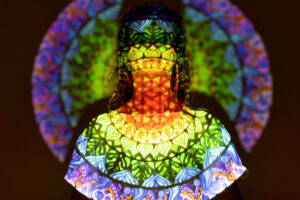There are all kinds of arguments as to what treatment method is much the better choice for curing prevalent diseases, but for people with health challenges, the goal is to be both healthy and well, no matter the approach.
If that treatment method can target everything all at once without inflicting any physical or mental pain, even better, and this is the goal of reiki, which uses non-invasive approaches to promote feelings of wellbeing. But just what is reiki?
What is Reiki?

Reiki is an energy healing technique whereby a practitioner places their hand either directly on a patient (direct touch) or just above the patient to effect healing. The word “reiki” was coined from the Japanese words rei, which means “universal,” and ki, meaning “life energy.”
This healing method targets the energy blocks in parts of the body with physical or emotional pain by exploring the flow of energy from one point of contact to another, relieving a patient of stagnant energies that induce those illnesses.
Reiki improves and increases energy circulation in the body in the same manner as acupressure. Reiki has been practiced in its current form since 1922 and is said to have originated with the Japanese Buddhist Mikao Usui. The practice has since spread to the United States, where it continues to help people with illnesses to get fit again for everyday life and work.
How Does Reiki Work?
As mentioned, the reiki healing technique is performed through a practitioner who channels life force energy through their palms either by touching a patient directly or “laying of hands.”
Once this is done, an energy life force flows through the recipient’s energy field (their body), re-establishing the normal flow of energy in the body, and this, in turn, promotes better health and wellbeing.
This energy transfer allows the receiving individual to attain a new state of relaxation as well as physical, mental, and emotional balance. This way, reiki helps to enhance the recipient’s self-healing abilities.
Benefits of Reiki

Reiki is linked with significant benefits that enable patients to become hale, hearty, and well-adjusted physically and mentally. Studies have found that reiki provides a sense of balance and harmony while decreasing stress levels and negative thoughts.
One study shows that reiki enables relaxation and helps in controlling anxiety attacks and depression. Another research suggests reiki improved the wellbeing of cancer patients by limiting unwanted effects linked to chemotherapy, enhanced patients’ quality of life, and helped patients with their care.
Besides, random clinical trials have assessed how reiki can help in relieving pain, anxiety, and fatigue. The tests found that cancer patients who combined conventional medical care with 30-minutes of reiki for five days experienced lower levels of pain, anxiety, and fatigue than those who only received regular medical care.
Another study found that reiki significantly reduced anxiety, pain, and breathing rate in women after cesarean delivery. Similarly, other findings suggest that reiki improves the quality of life of those suffering from terminal or chronic illnesses like cancer by helping with their sleep patterns, self-confidence, and depression levels. This allowed patients to experience a sense of calm, inner peace, and relaxation. That’s not all; reiki has also been found to boost mood in an enduring way.
Who Does Reiki Help?
Research has shown that reiki assists with various symptoms. The treatment has proven effective in low back pain, cancer, anxiety, heart disease, infertility, chronic pain, depression, mental fatigue, stress, autism, Crohn’s disease, and neurodegenerative disorders.
At the end of a reiki treatment, recipients often report experiencing peace, a profound sense of discernment, and a renewed sense of trust for their strengths and capabilities.
Risks and Side Effects of Reiki
Owing to its non-invasive nature, reiki has no side effects, toxicity, or interaction with anything at all. Instead, it generates effects that help to improve the individual and their evolution. The fact that recipients usually report feeling relaxed or energized, depending on their symptoms, is a testament to the efficacy of reiki.
Reiki is deemed safe enough that reputable institutes like Yale, Harvard, the University of California (Los Angeles), the University of Arizona, the University of Minnesota, etc., all offer it as a complementary therapy to conventional treatments.
Where Can I Find a Qualified Reiki Practitioner?
Reiki is readily available across the United States and is now gaining popularity. As a result, you can find qualified reiki practitioners in private practice settings, hospitals, and many rehabilitation centers.
Alternatively, you can leverage the online tools offered by reiki professional bodies like the Reiki Alliance, the International Association of Reiki Practitioners, and the International Reiki Association to locate a practitioner in your local area.
That being said, we encourage you to take your time, do your due diligence, and check into the center bearing in mind things like their level of experience, what type of reputation they have, and whether they’re an organization or someone who take the practices serious enough to provide the services you need without wasting your valuable time.
How Much Does a Reiki Session Cost?
In general, the cost of a reiki session varies between $30 to $100. However, you can expect to pay more depending on the treatment center or location. A typical reiki session lasts 30 minutes to an hour.
A Word of Caution
While reiki ensures greater mental states, health, and quality of life, like any intervention, it isn’t a cure-all, nor is it an alternative treatment for medical issues. Instead, reiki is a complementary therapy that can help support healing and enhance wellbeing. As always, we encourage you to discuss reiki first with your medical doctor before you proceed with the treatment.
Conclusion
As an energy healing technique, reiki effectively treats many kinds of illnesses, including cancer, anxiety, low back pain, heart disease, among others. Research also suggests it’s safe to combine reiki with conventional treatment methods like chemotherapy.
Whether you’re a reiki practitioner, massage therapist, or someone who wishes to treat their body to relaxing massage therapy, our soothing and nurturing oils will help you achieve the best outcomes possible.
Our oils include premium ingredients designed to deliver exceptional results for therapists and a unique and personalized moment for clients. Please contact us on (insert number) for details on how we can help you ensure massage pleasures.


